Interesting material has appeared on Gamasutra dedicated to small consoles running on the Android operating system. We present a brief retelling of it in Russian.
Ouya
In fact, the boom of microconsoles began with Ouya. In 2012, the startup of the same name raised $8.6 million for its development using Kickstarter. Following the results of the campaign, venture capitalists took a closer look at the product.
Advantages:
- Excellent developer support. Gamasutra journalists interviewed a lot of developers: everyone said only good things about the support work;
- An open platform. Minimal appruv (reviewers look at whether there is prohibited content in the application, how it is optimized for the console, as well as how monetization works in the game);
- A good showcase. There are samples from game developers, journalists and employees of Ouya;
- The platform is constantly in the spotlight. She is a symbol of the entire Android console movement.
Cons:
- Bad controller. Cheap in appearance, not working well. Fortunately, you can connect a controller from Xbox 360/Playstation 3;
- The console itself also suffers from bugs (loss of wi-fi, input delay, brakes in the menu);
- Poor sales of both the console itself and games for it;
- Inconvenient purchase process. You cannot directly purchase games from the Ouya store. First you need to download the free version, then buy the full version from the game menu.
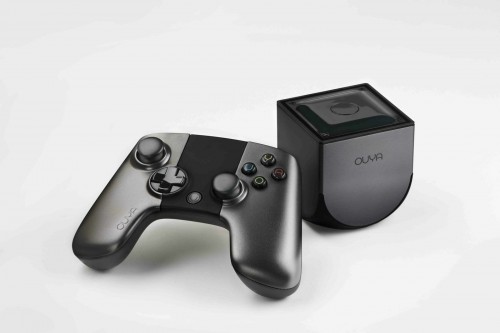
You can learn more about the development under Ouya here.
The main condition for getting on the platform: the availability of a free version.
Ouya charges the standard 30% from the distribution.
The price of the console itself is $99
GameStick
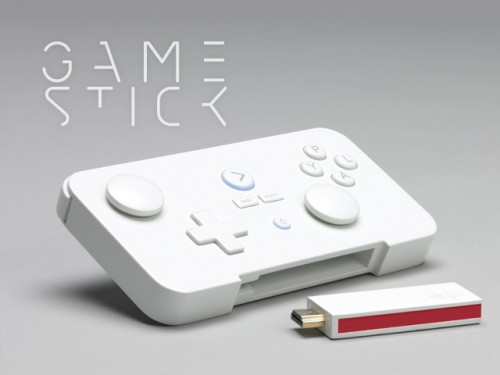
Playjam raised money for the project, too, using Kickstarter. Scored a relatively modest $650 thousand.
GameStick is a small controller made in the style of a gamepad for SNES. Inside is a dual–core Amlogic 8726-MX and 1GB DDR3.
A Bluetooth stick is attached to the device, which is inserted into the HDMI port of the TV. With its help, the picture is transmitted to the screen.
Advantages:
- Low price;
- An unusual format (in fact, a mobile console that can be played on anything with an HDMI port);
- You can immediately purchase games from the showcase;
- Support for iOS and Android devices. They can be used as additional controllers;
- The platform is open. Minimum appruv;
- Developers from Playjam have been on the SmartV market for a long time. Their distribution experience may help them to effectively solve the problems of game developers.
- There is a docking station with additional USB ports and additional memory.
Cons:
- The console hasn’t come out yet. This month it will be available to those who subsidized the development through Kickstarter.
You can find out about the development for the console itself here.
Playjam takes 30% of the profit from distribution in its store.
The cost of GameStick is – $79.
GamePop
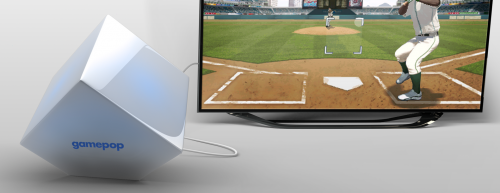
The console is the brainchild of BlueStacks startup, which just over a year ago launched BlueStacks app player, which allows you to play Android games on PC and Mac.
Gamepop is an Android 4.2 set–top box that will allow you to play mobile games on a large screen using an iPhone or Android smartphones as a gamepad. Games for Gamepop will be distributed by subscription.
Advantages:
- The developer receives income from the IAP in 100% amount. GamePop is enough that a player spends $6.99 per month on a subscription;
- The console runs not only Android games, but also projects created for iOS (with minimal changes in the code);
- Users will be able to use their smartphone or tablet as a controller.
Cons:
- Already, the GamePop starting line has 500 projects. For the user, this is good. But it is still not completely clear to developers how it will be possible to raise the visibility of applications in the local store.
- It is also unclear exactly how developers’ earnings will be calculated in GamePop. The company says that the payouts will depend on how much time players will spend in a particular game.
More about the platform here.
Price: console + controller – $129 + monthly subscription, small version of console + controller – free of charge + monthly subscription
Mojo
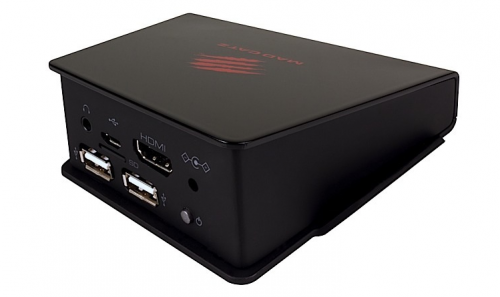
The main feature of Mojo is that it is a completely open platform. That is, you can download apps from any Android store, including Google Play and Amazon Appstore.
It is a modest-sized box with a large number of ports. A gamepad is attached to the box.
Advantages:
- You can download any application to your device from any store;
- They promise that the console will be powerful, perhaps it is built on the basis of Tegra 4;
- It will be possible to play even those projects that do not support controllers on the console. To do this, just attach the mouse.
Cons:
- It’s completely open. No appurve of apps. You can run anything, even a pirated version of your game;
- Lack of own app store;
- Mojo is expected to have a high price;
- Since the stores will be third-party, it means that users will regularly have problems with the lack of controller support.
Nvidia Shield
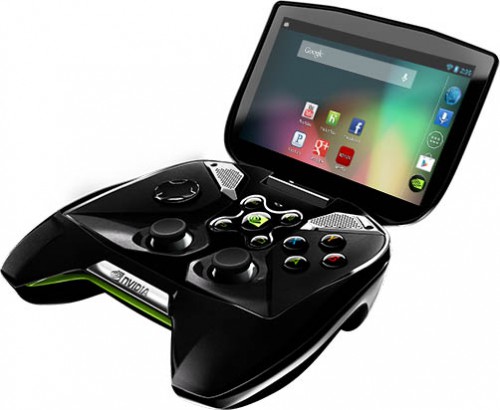
A pocket console from Nvidia with a “cover”, aimed at hardcore players.
Advantages:
- Like Mojo, Nvidia Shield is an open platform devoid of its own store;
- Very powerful filling. Tegra 4 beats in the heart of the device;
- There is a lot of documentation on the development of games for devices built on Tegra on the web;
- Streams PC games using wi-fi.
Cons:
- There is no store of its own, in fact, there is no point in developing games for it;
- It costs more than the Xbox 360 – $299;
- Not all PC games are streamed. In addition, the player must have a very expensive video card in order for this function to work.
Conclusion
These five consoles are just the tip of the iceberg, because there are still countless Chinese devices that allow you to run Android games. In addition, the market for Bluetooth controllers, such as MOGA and Green Throttle, is slowly growing now.
How relevant these solutions are is a big question, because after the release of the official controllers from Apple and Google, most of these solutions will completely lose their meaning.
A source: gamasutra.com
